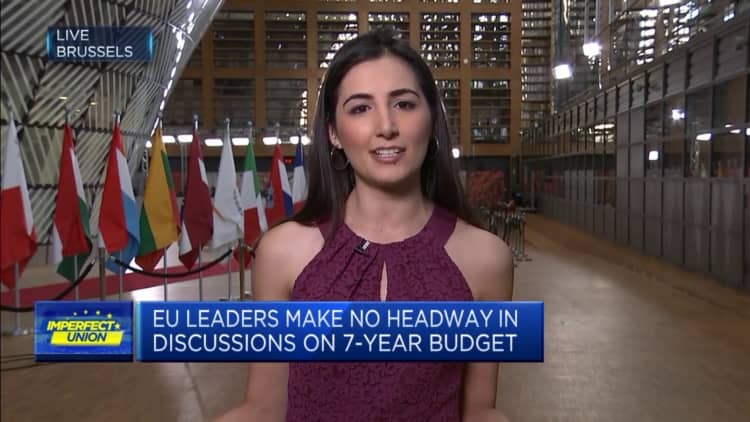
European leaders are at loggerheads over how much money to put into the EU's budget for the next seven years, after an all-night meeting in Brussels.
Charles Michel, the president of the European Council and who's chairing the talks, has so far failed to convince all member states that his proposal of a 1.094 trillion euro ($1.181 trillion) budget is the best way forward.
Ahead of a second day of talks, the Danish Prime Minister Mette Frederiksen told reporters it's unlikely there will be an agreement at the ongoing meeting. She also warned that member states will probably have to be called back to Brussels in order to finalize a plan.
The fight over the next EU budget is something of a tradition in Brussels, and highlights divisions and disagreements within the region.
Some countries want a bigger budget to fund programs — such as the promotion of human rights and security— across the EU, whereas others want to contribute less to the bloc and therefore have a smaller budget. This year, the talks are even harder given the U.K.'s departure from the EU which leaves the bloc with a financial shortfall of around £55 billion ($71.3 billion) over the next seven years.
"My view has been clear from beginning. We can't expect to do more with less," Kyriakos Mitsotakis, the Greek prime minister, told CNBC Thursday.
Meanwhile, the prime minister of Luxembourg told CNBC his counterparts cannot forget that contributing to the EU budget has its benefits. "The problem is that most of us … just take out a calculator to see what it costs ... For my country, for example, it's 1.50 euro a day, and we should not forget that it brings us freedom: freedom of movement, for companies ... the biggest democracy in the world," Xavier Bettel said Thursday.


